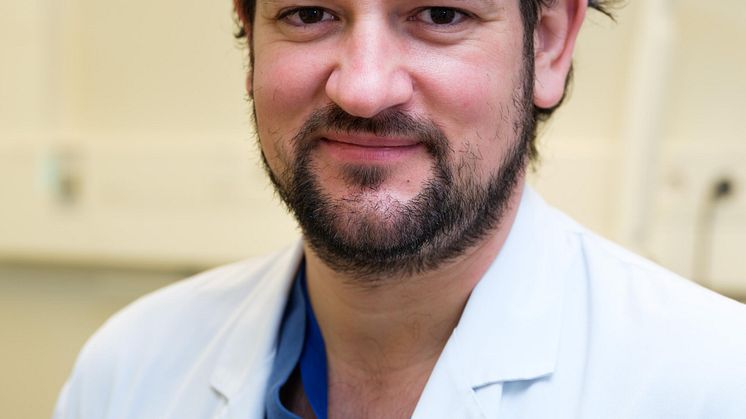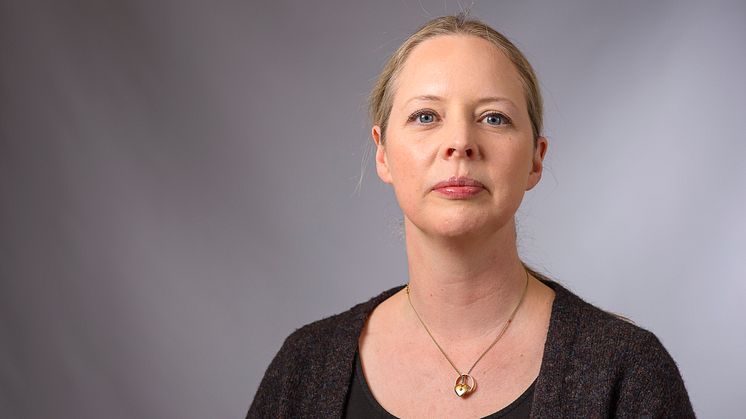
Press release -
Increased risk of heart rhythm disruption after COVID-19
Individuals infected with COVID-19 are also at an increased risk of suffering from heart rhythm disturbances, such as atrial fibrillation. This is shown in a new study at Umeå University, Sweden, which is one of the largest studies of its kind in the world.
"The results underline the importance of both being vaccinated against COVID-19 and that the healthcare system identifies people at increased risk of this type of complications, so that the correct diagnosis is made and appropriate treatment is started in time," says Ioannis Katsoularis, first author of the study and cardiologist at University Hospital of Northern Sweden in Umeå.
The researchers were able to show that those who had been ill with COVID-19 could also suffer from heart rhythm disturbances, both in the form of so-called tachycardias, when the heart ha rate is high, and bradyarrhythmias, when the heart is slow so that a pacemaker is sometimes needed.
The study shows that the risk of atrial fibrillation and flutter was increased up to two months after infection. In the first month, the risk was twelve times greater than for people who did not suffer from COVID-19infection.
Even the risk of a specific subset of tachycardias, paroxysmal supraventricular tachycardiaswas elevated up to 6 months after the infection and was five times greater in the first month. For the bradyarrhythmias, the risk was increased up to 14 days after the infection and was three times greater in the first month compared to subjects without COVID-19. Previous research in this area had not focused as much on which individuals are most at risk.
“We found that the risks were higher in older individuals, individuals with severe COVID-19 and during the first wave of the pandemic. We could also see that unvaccinated people were at higher risk than vaccinated people. Overall, the severity of the infection was the strongest risk factor," says Anne-Marie Fors Connolly, who leads the research group at Umeå University that is behind the study.
In the study, information from large national registers was cross-checked. All people who tested positive for the virus in Sweden from the start of the pandemic until May 2021 were included, but also a comparison group of individuals without a positive test for the virus. Over one million individuals with COVID-19 and over four million control individuals were included in this nationwide study, which is one of the largest of its kind in the world. Researchers at Umeå University have previously shown that COVID-19 leads to an increased risk of blood clots, myocardial infarction and stroke.
The study was published in the scientific journal European Heart Journal Open.
About the study
Risk of arrhythmias following COVID-19: nationwide self-controlled case series and matched cohort study
Ioannis Katsoularis, Hanna Jerndal, Sebastian Kaucza, Krister Lindmark, Osvaldo Fonseca-Rodriguez, Anne-Marie Fors Connolly
https://doi.org/10.1093/ehjopen/oead120
For more information, please contact
Ioannis Katsoularis
Department of Public Health and Clinical Medicine, Umeå University
Phone: +46 73 159 20 90
E-mail: ioannis.katsoularis@umu.se
Anne-Marie Fors Connolly
Department of Clinical Microbiology, Umeå University
Phone: +46 073 347 95 06
E-mail: anne-marie.fors.connolly@umu.se
Topics
Categories
Umeå University
Umeå University is one of Sweden’s largest institutions of higher education with over 37,000 students and 4,300 faculty and staff. The university is home to a wide range of high-quality education programmes and world-class research in a number of fields. Umeå University was also where the revolutionary gene-editing tool CRISPR-Cas9 was discovered that has been awarded the Nobel Prize in Chemistry.
At Umeå University, distances are short. The university's unified campus encourages academic meetings, an exchange of ideas and interdisciplinary co-operation, and promotes a dynamic and open culture in which students and staff rejoice in the success of others.





